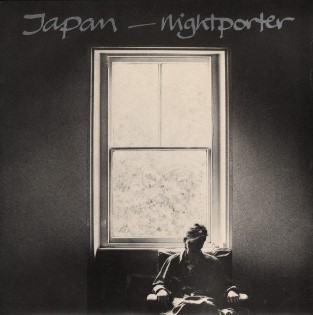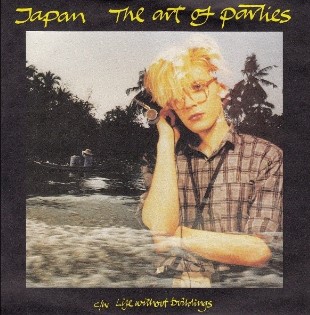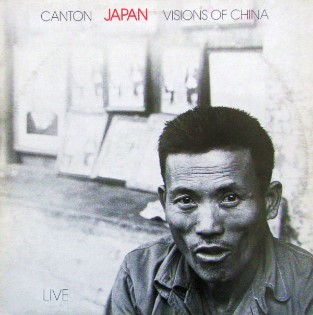
Japan were an English new wave band formed in 1974 in Catford, South London by David Sylvian, Steve Jansen (drums) and Mick Karn, joined the following year by Richard Barbieri (keyboards) and Rob Dean. Initially a glam rock-inspired band, Japan developed their sound and androgynous look to incorporate art rock, electronic music and foreign influences.

Gone to Earth is the third solo studio album by English singer-songwriter David Sylvian, released on 1 September 1986 on Virgin Records. A double album, Gone to Earth is the follow-up to his debut record, Brilliant Trees, and peaked at No. 24 in the UK Albums Chart.

Secrets of the Beehive is the fourth studio album by English singer-songwriter David Sylvian. The album was released on 19 October 1987 in Europe and the United States. The album peaked at No. 37 in the UK album chart. The album was released in Japan on 21 November 1987.

Brilliant Trees is the debut solo studio album by the English musician David Sylvian, released on 25 June 1984 by Virgin Records. The album peaked at number 4 on the UK Albums Chart and has been certified Gold by the British Phonographic Industry (BPI) for sales in excess of 100,000 copies.

Tin Drum is the fifth and final studio album by English band Japan, released in November 1981 by Virgin Records. It peaked at No. 12 on the UK charts, and featured the top 5 single "Ghosts". It has received acclaim as the band's best and most original work.

Gentlemen Take Polaroids is the fourth studio album by the English band Japan, released in November 1980 by Virgin Records.

Quiet Life is the third studio album by English new wave band Japan, first released on 7 December 1979 in Canada, Japan and The Netherlands by record label Hansa and on 18 January 1980 in the UK.

Oil on Canvas is a live album by the English band Japan, released in June 1983 by Virgin Records. It was released six months after the band had broken up, and became their highest charting album in the UK, peaking at number 5. It has been certified Gold by the British Phonographic Industry for sales in excess of 100,000 copies.

"All Tomorrow's Parties" is a song by the Velvet Underground and Nico, written by Lou Reed and released as the band's debut single in 1966. The song is from their 1967 debut studio album, The Velvet Underground & Nico.

"Ghosts" is a song by English band Japan. It was released in edited form in March 1982 as the third single from their 1981 album Tin Drum.

Assemblage is a compilation album by the British band Japan, released in September 1981 by Hansa Records.

"Bamboo Houses" is a song by Japanese musician-composer Ryuichi Sakamoto and English singer-songwriter David Sylvian, released on Virgin Records in 1982. It reached number 30 in the UK charts in the second week of August 1982.

"Nightporter" is a song by English new wave band Japan. The song originally featured on the band's fourth album Gentlemen Take Polaroids in 1980. However, it was then remixed by Steve Nye and released as a single in November 1982. The single peaked at number 29 on the UK Singles Chart.

"Red Guitar" is a song by the English singer-songwriter David Sylvian. Released in May 1984, it was his debut solo single and taken from his first solo album Brilliant Trees. It peaked at no.17 on the UK Singles Chart.

Visions of China is a song by English new wave band Japan, released in October 1981 as the second single from their 1981 album Tin Drum, which was released on 13 November. The single reached number 32 on the UK Singles Chart.

"The Art of Parties" is a song by the British band Japan.

"Cantonese Boy" is a song by English new wave band Japan, released in May 1982 as the fourth and final single from their 1981 album Tin Drum. The single peaked at number 24 on the UK Singles Chart. The song refers to the enlistment of a Cantonese boy to the Chinese Red Army.

"European Son" is a song by the British band Japan.

"Gentlemen Take Polaroids" is a song by English new wave band Japan, released as a single from the album of the same name in October 1980. It was the band's first charting single in the UK, peaking at number 60.

"Canton" is an instrumental song by English new wave band Japan. It was originally released on the album Tin Drum in 1981, and was then released as the only single from the live album Oil on Canvas in May 1983. It peaked at number 42 on the UK Singles Chart.



















